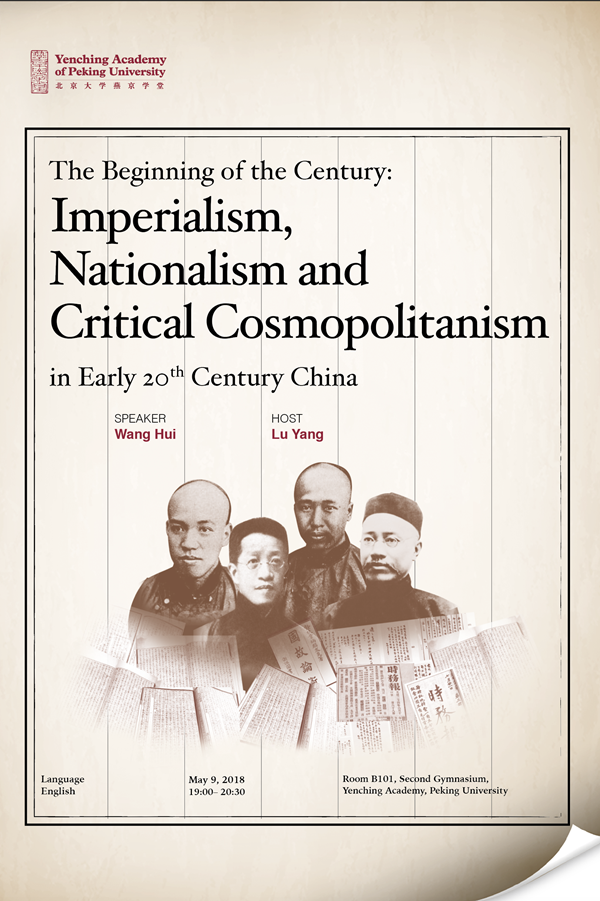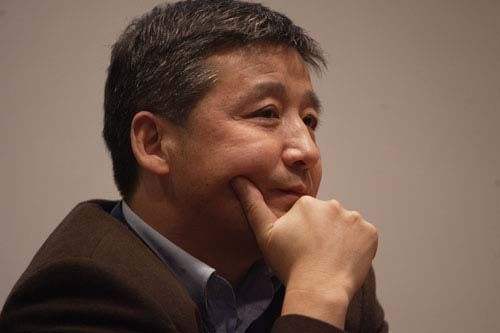
Speaker: Wang Hui (汪晖)
Host: Lu Yang (陆扬)
Theme: The Beginning of the Century: Imperialism, Nationalism and Critical Cosmopolitanism in Early 20th Century China
Date: May 9 (Wednesday), 2018
Time: 19:00–20:30
Location: Room B101, Second Gymnasium, Yenching Academy, Peking University
Language: English
Abstract:
At the beginning of the 20th century, the alien idea of century replaced other traditional concepts of chronology in China and reshaped Chinese idea of time. Following the application of 20th century in Chinese context, other related concepts such as 19th century, 18th century and their sequence emerged as derivatives of 20th century. Before 1900, the concept of century had never been discussed in this sense in China and never used as the self-consciousness of our era. The notion of century is closely connected with the 20th century, its distinction from paster as being not just a simple temporal demarcation but an understanding of singular propensity of the time, which render the history of the others into a history of one's own, while situating it within history in toto for explanation and identification. This is the birth of global synchronicity in the history of China. This talk will examine the birth of the notion of the 20th century in China from an intellectual history perspective and analyze its particular position in the history of China from the perspectives of time (history), space, self-identification, social ideals etc. through re-reading some key texts by Kang Youwei, Zhang Taiyan, Yan Fu, Liang Qichao as well as some thinkers from Japan and Europe.
Speaker:

Wang Hui, Distinguished Professor in literature and history at Tsinghua University, Changjiang Scholar, Director of Tsinghua Institute for Advanced Study in Humanities and Social Sciences. He started his career as a scholar in modern Chinese literature, especially Lu Xun studies and then moved to Chinese intellectual history after achieving his Ph.D in 1988 at Chinese Academy of Social Sciences. From 1996 to 2007, he served as co-editor ofDushu magazine and organized a series of significant intellectual debates in China. His fields are Chinese intellectual history, modern Chinese literature and social theory etc. His publications include The Rise of Modern Chinese Thought (four volumes), The Depolitized Politics, "Tibetan Question" between East and West, From Asian Perspective: Narrations of Chinese History, The Short Twentieth Century: Chinese Revolution and the Logic of Politics etc. Many of his works have been translated into different languages including China's New Order, The End of the Revolution, The Politics of Imagining Asia , China from Empire to Nation-State, China's Twentieth Century, etc. In 2008, he was nominated as one among 100 world intellectuals by Foreign Policy and Prospect and was again nominated as one among 65 intellectuals for "World Thinkers" by Prospect. He is the winner of several prizes including "2013 Luca Pacioli Prize" (shared with Jürgen Habermas) and "2018 Annelies Maier Research Award".